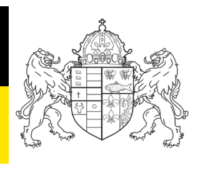Immigration and tourism
To carry out procedures relating to consular acts in foreign countries, you must attend your Embassy or Consulate.
Through CONSULARIS, GOUV can make your request and help you manage the situation.
For more details please contact:
info@consularis.ro
or
info@consularis.com.br
- What is immigration?
Immigration is the process of individuals moving from one country to another with the intention of residing there permanently or semi-permanently. It involves crossing international borders and establishing a new legal and usually permanent residence in the destination country.
People immigrate for various reasons, including economic opportunity, family reunification, education, asylum or refugee status, marriage, and investment. Economic migrants may seek better job opportunities, higher wages, or improved living standards in their destination country. Family-based immigration occurs when individuals join family members who are already living in another country. Students may immigrate to pursue higher education or specialized training abroad. Refugees and asylum seekers may immigrate to seek protection from persecution, conflict, or humanitarian crises in their home countries. Marriage to a citizen or permanent resident of another country can lead to immigration through family sponsorship. Some countries offer immigration programs that allow individuals to obtain residency or citizenship through investment in the country’s economy.
Immigration involves complying with the immigration laws and regulations of the destination country, which may include obtaining a visa or residency permit, undergoing background checks, providing documentation, and sometimes passing language or citizenship tests. Immigration policies vary widely between countries and may be influenced by economic conditions, security concerns, cultural considerations, and political factors.
Once immigrants arrive in the destination country, they may undergo further processing by immigration authorities, such as customs and border protection. They may be required to fulfill certain obligations, such as registering with local authorities, obtaining work permits, or participating in integration programs.
Immigration is a complex and often contentious issue that can have significant social, economic, and political implications for both sending and receiving countries. It is a topic of debate and policy development at national and international levels.
- What is tourism?
Tourism is the activity of traveling to different places, typically for leisure, recreation, or exploration. It involves individuals or groups visiting destinations outside of their usual environment for various purposes, such as relaxation, cultural enrichment, adventure, or simply to experience something new.
Tourism encompasses a wide range of activities and experiences, from visiting natural attractions like beaches, mountains, and national parks, to exploring historical sites, museums, and landmarks. It can also include engaging in outdoor activities such as hiking, skiing, or snorkeling, as well as participating in cultural events, festivals, or culinary experiences.
Tourism plays a significant role in the economies of many countries, contributing to job creation, infrastructure development, and revenue generation. It can stimulate local businesses such as hotels, restaurants, transportation services, and souvenir shops. Additionally, tourism can foster cultural exchange, understanding, and appreciation between visitors and host communities.
Types of tourism include domestic tourism, where individuals travel within their own country, and international tourism, which involves crossing international borders. Other forms of tourism include ecotourism, which focuses on responsible travel to natural areas while conserving the environment and improving the well-being of local people, and adventure tourism, which involves activities that are physically challenging and often involve an element of risk.
Overall, tourism is a diverse and dynamic industry that offers opportunities for exploration, relaxation, and cultural exchange, while also contributing to economic growth and development on both local and global scales.


